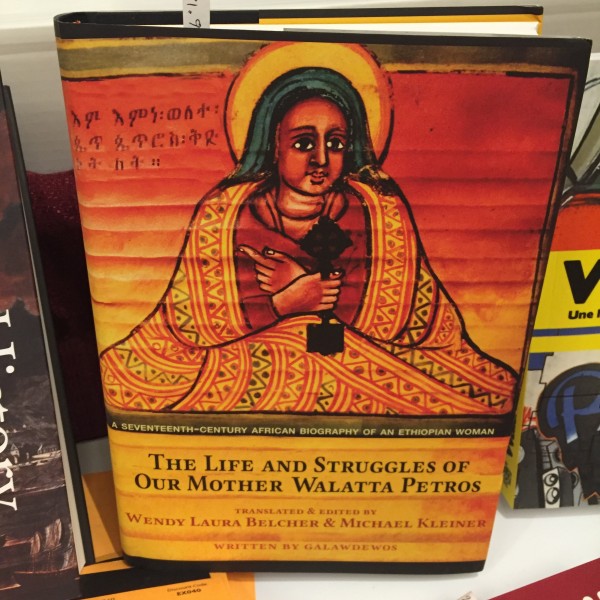
This right here is a literary marvel in every way. The Life and Struggles of Our Mother Walatta Petros was written in the 1670s. It records the life of an African woman named Walatta Petros living in an Ethiopian monastery, which she also managed.
The book has been around for over 300 years. About 12 hand-written copies of the book dating from way back then still exists today. Thanks to a collaboration between two literature professors—Wendy Laura Belcher and Michael Kleiner—and Princeton University Press, Petros’ biography is available for us to read in English.
For many of you reading this, so much of Petros’s lifetime will come as a surprise—the fact that Christianity came to certain parts of Africa, as far back as 4th century CE, long before it existed in most of Europe. Walatta Petros not only practiced this uniquely African form of Christianity but lived a remarkable life as an abbess of a monastery.
She was born in 1592. About 30 years after her death in 1642, someone named Galawdewos collected stories about her life in the form of a book. These stories revealed, among other things, that Petros “was born to an adoring father, lost three children in infancy, left her abusive husband, started a movement, defeated a wicked king, faced enraged hippos and lions, avoided lustful jailors, founded seven religious communities, routed male religious leaders, gathered many men and women around her, and guided her flock subject to no man, being the outright head of her community and even appointing abbots, who followed her orders.”
The text was originally written in Geez, the “liturgical language of the Ethiopian church.”
That fact that an account of Petros’ life has been translated and is available for us to read is beyond amazing. For one thing, the book opens up Africa’s past in a whole new way. It gives us a rare glimpse into how women lived in some parts of Africa. And, in so doing, challenges our assumptions about the place of women in African cultures and how they lived in the distant past.
As you can imagine, a book this ground-breaking would be packed full of surprises. In her interview with Princeton University Press, Belcher says that the book “features a life-long partnership between two women and the depiction of same-sex sexuality among nuns.” It records “the earliest known depiction of same-sex desire among women in a sub-Saharan Africa text.” Petros’s relationship with Eheta Kristos was celibate but it lasted throughout their lives. This information completely upends the widely held belief that same-sex love is an unAfrican and western import. We need more books like these that throw light on Africa’s past in unexpected ways.
Kudos to Belcher and Kleiner for translating such a significant text.
Click here to order the book and here to read more of the interview.








Catherine Onyemelukwe January 25, 2016 16:40
Fascinating to read about this woman of the 17th century in Ethiopia! I'd love to read the book. But won't order now - too many other books wiating to be read! I kept the info though. May blog about it too.